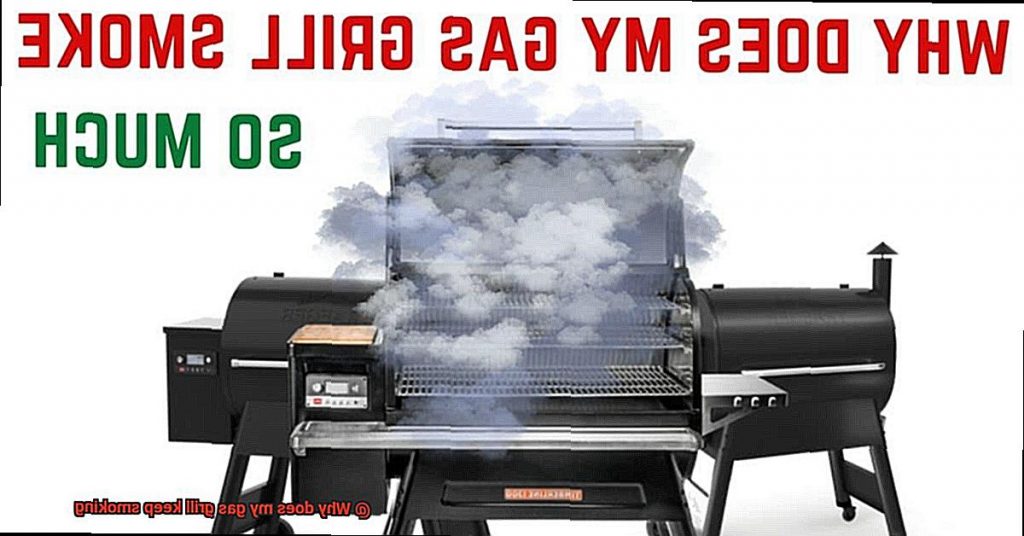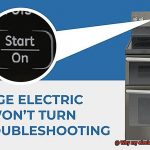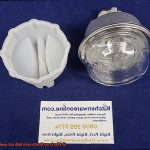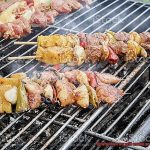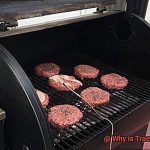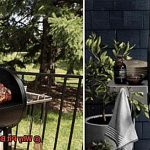Are you tired of the constant smoke pouring out of your gas grill, ruining your perfectly grilled food? Don’t worry, you’re not alone in this frustrating situation. It’s time to put an end to the smoke and get back to enjoying delicious meals with friends and family.
You might be wondering why your gas grill keeps smoking, despite being designed for a clean and efficient flame. Well, the answer is simpler than you think. There are a few common factors that can contribute to excessive smoke production, such as dirty cooking grates or using the wrong type of fuel.
But fear not. In this blog post, we’ll dive into the nitty-gritty details of why your gas grill keeps smoking and provide practical tips on how to fix it. From proper maintenance techniques to selecting the right fuel type, we’ve got you covered.
So let’s get ready to take your grilling skills up a notch by learning how to tame that pesky smoke and achieve mouth-watering results every time.
Contents
Causes of Smoke from a Gas Grill
Excessive smoke not only ruins the flavor of your food but can also pose a safety hazard. To help you identify the possible culprits behind this issue, we have compiled a list of causes of smoke from a gas grill.
The first and most common reason for smoke from a gas grill is excess grease buildup. When meat or other items are cooked on the grill, the grease drips down onto the burners, causing smoke and even flare-ups. To avoid this, it is crucial to clean the grill regularly and remove any excess grease.
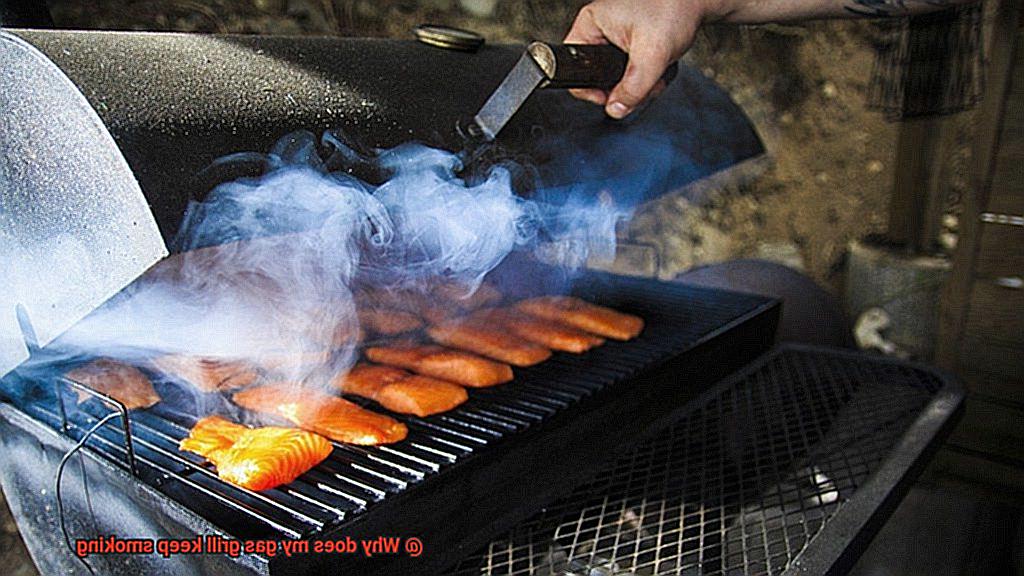
Another reason for smoke from a gas grill could be leftover food debris or marinade on the grates. This can lead to smoke and even alter the taste of your food. A simple solution is to preheat the grill before cooking and use a grill brush to scrape off any food debris.
In some cases, malfunctioning parts such as burners or regulators can cause smoke from a gas grill. A clogged burner can cause uneven heat distribution and produce smoke, while a faulty regulator can lead to insufficient gas flow and reduced heat output. In such situations, consulting a professional for repair or replacement is recommended.
Using low-quality fuel or an incompatible type of fuel can also result in excessive smoke from a gas grill. Charcoal briquettes or wood chips in a gas grill can cause damage to the components and produce excessive smoke. Following the manufacturer’s recommended fuel type is therefore essential for optimal performance and safety.
It is vital to inspect your grill regularly for damaged or missing heat shields that protect burners from grease and food debris. Heat shields are necessary equipment that prevents excess smoke production; hence, they should be replaced if damaged or missing.
Grease and Food Debris on the Grates or Drip Pan
First things first, cleaning your grill grates before each use is a must. Use a stiff wire brush to remove any food remnants or grease from the grates. For stubborn debris, don’t hesitate to grab a scraper tool to ensure that your grill grates are free from anything that could cause flare-ups or ruin the flavor of your meal.
If you’re looking for a deeper clean, it’s recommended to detach the grates and soak them in warm soapy water for several hours. A good scrub with a sponge or brush will get rid of any remaining residue.
But don’t forget about the drip pan. Cleaning it after each use is essential in preventing grease buildup. Simply empty any collected grease and food particles from the drip pan into a disposable container and wipe it clean with a damp cloth.
By keeping your grill grates and drip pan clean, you can avoid excessive smoking and ensure that your grilled meals are full of flavor. With regular cleaning using a stiff wire brush or scraper tool, as well as a deeper clean using warm soapy water, you can maintain the quality of your grilled meals.
In conclusion, here’s a checklist to help keep your gas grill clean:
Clogged Burners
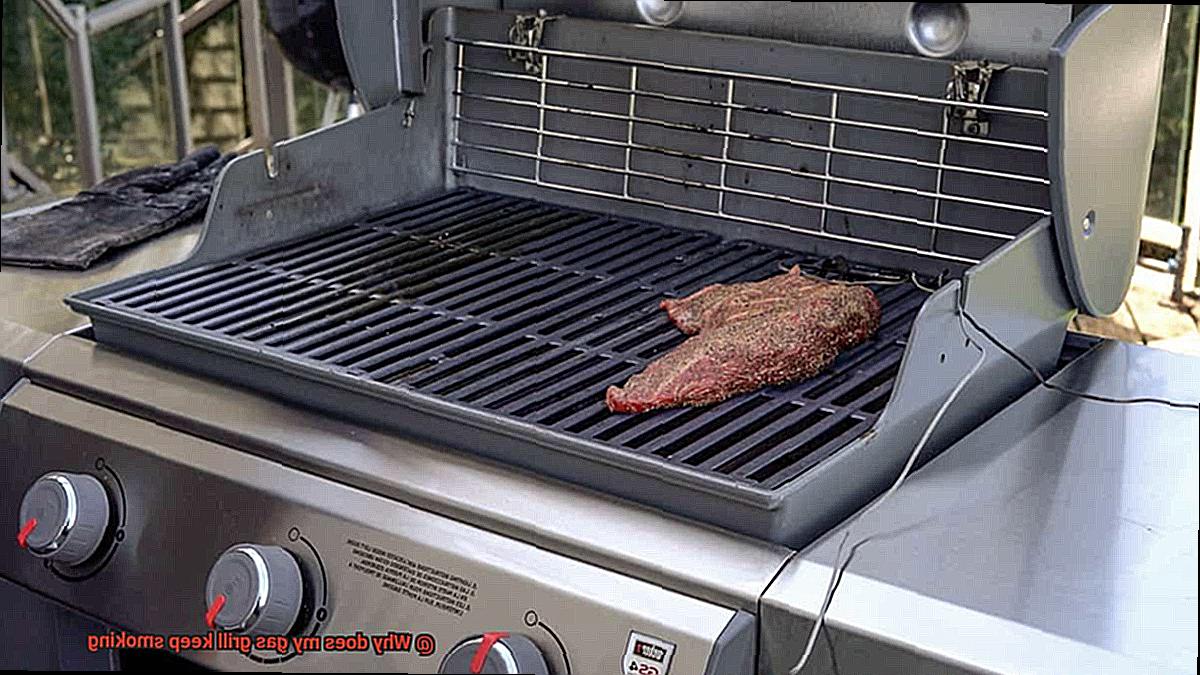
Calling all grill masters. Are you tired of your gas grill producing more smoke than sizzle? The culprit may be clogged burners. But don’t worry, I’m here to help you get your grill back in prime condition with some simple cleaning tips.
Prevention is the key to avoiding clogged burners. Regularly cleaning your grill is essential to prevent grease and food debris from accumulating on the burner tubes. After each use, grab a wire brush or scraper and remove all debris from the grates, burner tubes, and flame tamers.
If you’re already experiencing clogged burners, it’s time to roll up your sleeves and get cleaning. First, turn off the gas supply and disconnect the propane tank (if using a propane grill). Then, remove the grates and burner covers so you can access the burner tubes. Be sure to use a wire brush or pipe cleaner to carefully clean out any debris from the tubes while avoiding damage to other parts.
Once you’ve cleaned the burner tubes, reassemble your grill and test it to make sure it’s working properly. If you’re still experiencing issues with clogged burners, it may be time to replace them. However, by regularly cleaning your grill, you can avoid this costly solution and keep your grill working efficiently.
To further reduce grease buildup, consider using a drip pan or catch tray. These trays can effectively catch drippings from your food, preventing them from accumulating on the burner tubes. Remember to empty the tray regularly and clean it thoroughly as needed.
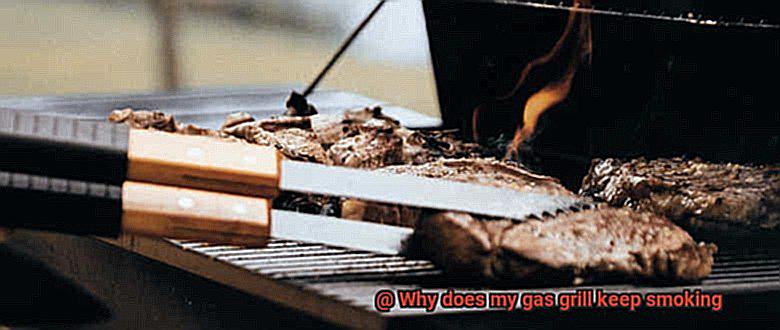
Damaged or Missing Heat Shields
The problem might be your heat shields. These often-overlooked grill components are essential to even heat distribution and preventing flare-ups.
When heat shields are damaged or missing, they can cause excess smoke and uneven heating, resulting in a less-than-ideal grilling experience. Here’s why:
- Direct Flame Exposure: Damaged or missing heat shields allow the burners to receive a direct flame from the gas source. This exposure causes food to be exposed to higher temperatures than intended, leading to excess smoke.
- Uneven Heating: Without proper protection from heat shields, the burners can become clogged with grease and food debris. This buildup causes uneven heating as certain areas of the grill receive more heat than others.
To prevent these issues, regularly inspect and maintain your heat shields. Check for visible signs of damage such as cracks, holes, or rust. If you notice any damage, it’s time to replace them.
Replacing heat shields is a simple process that can be done by purchasing new ones from your grill manufacturer or a third-party supplier. Just make sure to select the correct size and shape for your grill model.
Low or Empty Propane Tank
As grilling season heats up, it’s important to keep an eye on your propane tank’s fuel level to avoid any unexpected smokeouts. A low or empty propane tank can cause poor combustion and uneven cooking temperatures, leaving you with undercooked or overdone food.
To ensure a successful grilling experience, always check the level of your propane tank before each use. Most tanks come equipped with a gauge that displays the amount of fuel remaining, but if yours doesn’t, weighing the tank is an easy way to estimate how much propane is left. Simply subtract the weight of an empty tank from the current weight to get an idea of how much fuel remains.
Proper storage and handling of propane tanks are also essential for safe grilling practices. Tanks should be stored in a well-ventilated area away from heat sources and direct sunlight. When transporting tanks, always make sure they’re upright and secured in a well-ventilated area of your vehicle. And remember, propane tanks contain highly flammable gas and should always be handled with care and caution.
Solutions to Reduce Smoke from a Gas Grill
Summer is the perfect time for outdoor cooking, but nothing ruins a barbecue faster than smoke from your gas grill. Luckily, there are several solutions that can help reduce smoke and make your grilling experience much more enjoyable.
First, make sure to clean your grill grates regularly. Over time, grease and food particles accumulate on the grates, leading to excess smoke during cooking. Use a grill brush or scraper to remove any debris, and then wash them with warm soapy water.
Another solution is to use high-quality wood chips or chunks when grilling. These can add delicious flavor to your food without creating excess smoke. Soak the wood chips or chunks in water for at least 30 minutes before adding them to the grill to prevent them from catching fire.
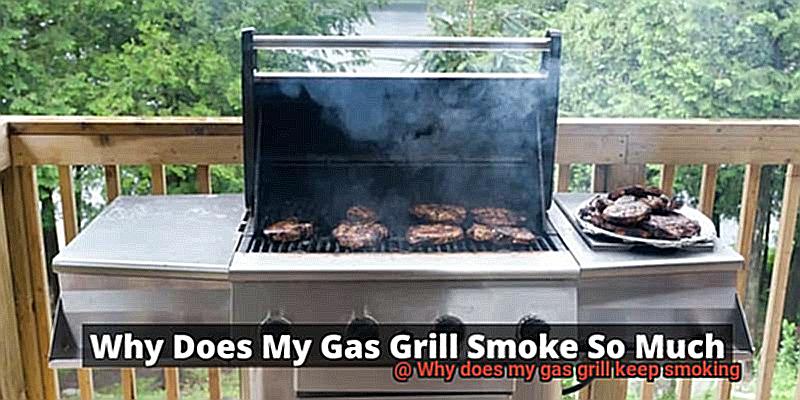
Adjusting the temperature of your grill can also help reduce smoke. If the grill is too hot, it can cause excess smoke. Try lowering the temperature and adjusting the flame height until you find the perfect balance for your grill.
Using a drip pan is another great way to reduce smoke. This catches any drippings from the food, preventing them from burning and creating excess smoke. Remember to empty the drip pan regularly to prevent flare-ups.
Finally, always preheat your grill before adding food. This will help burn off any excess residue on the grates and reduce smoke during cooking.
In summary, here are some tips to reduce smoke from your gas grill:
- Clean your grill grates regularly
- Use high-quality wood chips or chunks
- Adjust the temperature of your grill
- Use a drip pan
- Preheat your grill before adding food
Cleaning the Grates and Drip Pan Regularly
As a grill master, you know that the secret to perfect barbecued meat is a well-maintained gas grill. But did you know that cleaning your grates and drip pan regularly can make all the difference in your grilling experience? Here’s why:
Prevent Smoke:
Nothing ruins a summer barbecue faster than smoke pouring out of your grill. Grease and food particles build up on the grates and drip pan over time, causing flare-ups and smoke. Regular cleaning ensures that your grill functions at its best and produces delicious, smoke-free food every time you use it.
Extend Grill Life:
Grills are a significant investment, and you want to make sure they last as long as possible. Regular cleaning of the grates and drip pan ensures that they don’t rust or corrode, extending the life of your gas grill.
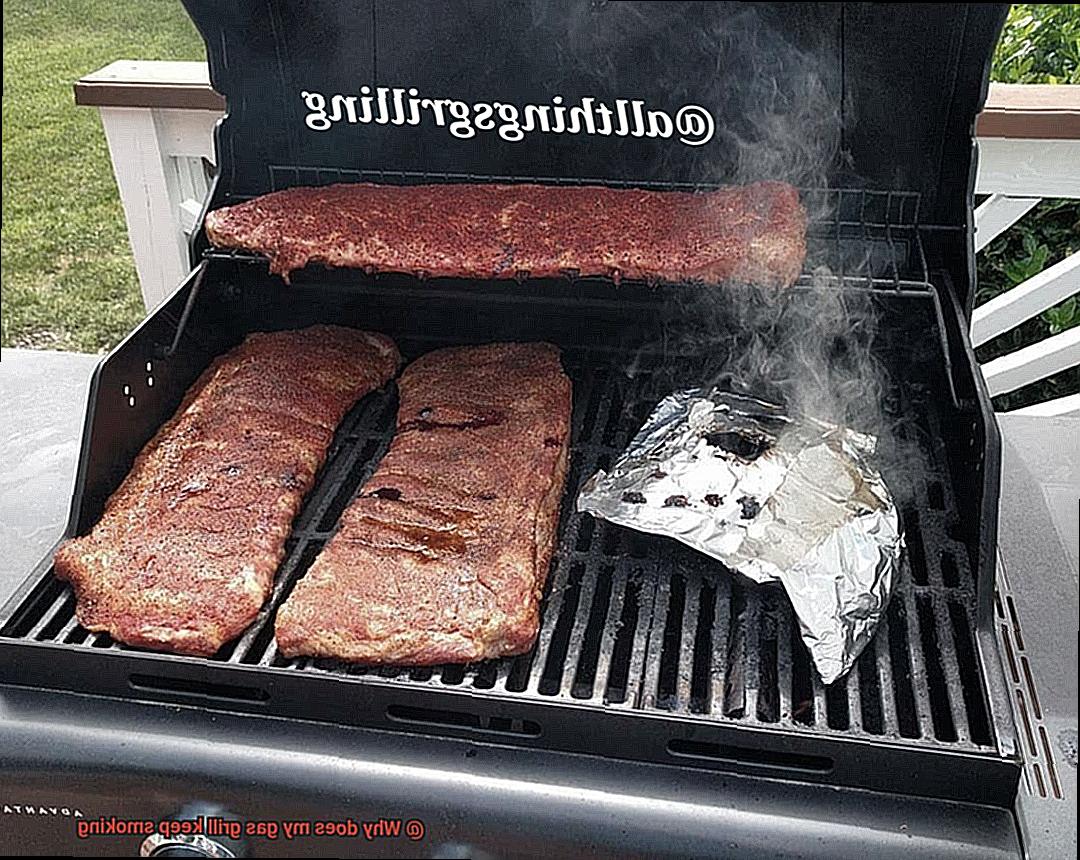
Better-Tasting Food:
When you cook on dirty grates or a dirty drip pan, leftover grease and food particles can transfer to your food, affecting its taste. By cleaning these components regularly, you’ll ensure that your food tastes as good as it should.
So how do you clean your grates and drip pan? It’s easy. Start by heating the grill on high for 10-15 minutes to burn off any excess food particles. Then, use a grill brush to scrub the grates thoroughly, removing any remaining debris. For stubborn stains or grease, use a mixture of baking soda and water or a specialized grill cleaner. Rinse the grates with water and dry them with a clean cloth before using them again.
Next, remove the drip pan from the grill and dispose of any excess grease. Wash it with warm soapy water or put it in the dishwasher if it’s dishwasher safe. Rinse it thoroughly and dry it before placing it back in the grill.
Cleaning the Burner Regularly
Attention all grill masters. Are you tired of smoke ruining your backyard BBQs? Look no further, because today we’re talking about the importance of regularly cleaning your gas grill’s burner.
Over time, grease and food particles can accumulate on the burner, causing it to clog and restrict the flow of gas. This leads to more smoke than usual and even the possibility of flames going out. But fear not, a clean burner is the solution.
Here are some sub-topics to guide you through the process:
Firstly, preparation is key. Before cleaning, turn off the gas supply and disconnect the propane tank for safety.
Next, access the burner by removing the grates and heat shields. Then use a wire brush or scraper to thoroughly clean all sides of the burner, removing any debris or residue.
Don’t forget to inspect for any signs of damage such as rust or corrosion. If you notice any issues, replace the burner before using the grill again.
Lastly, reassemble the grill and light it up to ensure everything is working correctly. If smoke persists after cleaning, there may be other issues that need to be addressed such as a faulty regulator or clogged venturi tube.
By cleaning your burner regularly, you can guarantee a functioning gas grill that produces delicious food without excess smoke. So get ready to impress your guests with mouth-watering burgers and perfectly grilled veggies.
Inspecting and Replacing Heat Shields as Needed
The solution could be as simple as inspecting and replacing your heat shields as needed. Let me, as an expert in this area, guide you through the process.
Heat shields are a critical component of your gas grill that protect burners from dripping grease, prevent flare-ups, and ensure even heat distribution. However, over time, these shields can become clogged with grease and debris, hindering their effectiveness. That’s why it’s essential to inspect them regularly for any signs of damage or heavy grease buildup.
To examine your heat shields, first, turn off your grill and let it cool down before removing the grates to access the heat shields. Inspect them closely for any visible damage or excessive dirt. If you notice any issues, it’s time to consider replacing them.
Fortunately, replacing heat shields is a simple process. Most gas grills have removable heat shields that you can easily replace with new ones. Just unscrew any bolts or clips holding the old shields in place and install the new ones in their position.
It’s crucial to ensure that you purchase the correct size and shape of heat shields for your specific grill model when replacing them. To find the right replacement parts, consult your grill’s manual or contact the manufacturer for assistance.
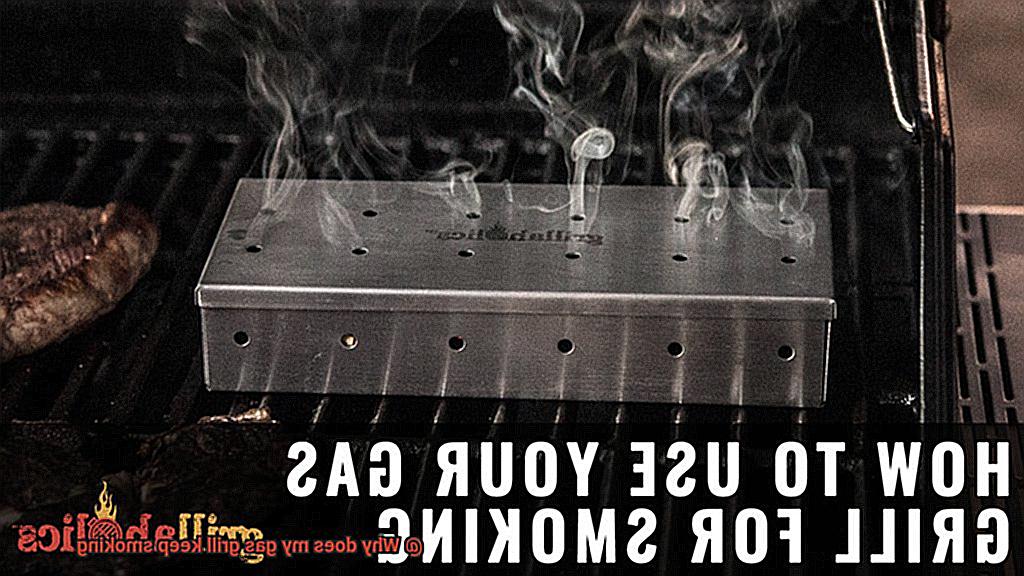
By regularly inspecting and replacing heat shields as needed, you can prevent smoking and flare-ups on your gas grill, ensuring it stays in top condition for years to come. So don’t let excess smoke spoil your BBQ parties; take care of your grill with simple maintenance steps like inspecting and replacing heat shields.
Checking and Replacing the Propane Tank as Needed
One of the most critical steps in ensuring your grill’s longevity and safety is checking and replacing the propane tank as needed. A malfunctioning or empty propane tank can lead to a smoking grill, or worse, a potential safety hazard.
Checking the propane tank is simple. Start by turning off the grill and disconnecting the tank. Take a close look at the tank for any visible signs of damage, such as dents or cracks. If you notice any damage, it’s best to replace the tank immediately to avoid safety issues.
Next, check the propane level using a propane gauge or by weighing the tank. If it’s running low, it’s time to replace it with a new one. Keeping a spare propane tank on hand ensures that you’ll never run out of fuel mid-grilling.
When replacing the propane tank, make sure to follow all safety precautions and guidelines. Always turn off the grill before disconnecting the old tank and attaching the new one. Use a wrench to securely fasten the connection between the tank and grill.
To recap, here are some essential tips for checking and replacing your propane tank:
- Turn off your grill and disconnect the tank.
- Inspect the tank for visible signs of damage, and replace it if necessary.
- Check the propane level by weighing or using a gauge.
- Keep a spare propane tank on hand.
- Follow safety precautions when connecting a new tank.
By following these simple steps, you’ll prevent excessive smoking and ensure a safe grilling experience. Remember that checking and replacing your propane tank is crucial for maintaining a well-functioning gas grill.
g0qrPYUNg94″ >
Also Read: Why Is Traeger Grill Pellet Box Smoking Too Much
Conclusion
In conclusion, nothing ruins a backyard BBQ faster than excessive smoke from your gas grill. It can be frustrating and make your food taste less appetizing. But fear not. There are several reasons why this might happen, including excess grease buildup, leftover food debris or marinade on the grates, malfunctioning parts like burners or regulators, using low-quality fuel or an incompatible type of fuel, and damaged or missing heat shields that protect burners from grease and food debris.
To prevent excessive smoke, it is crucial to keep your grill clean and well-maintained. Regularly cleaning your grill grates and drip pan is important, as is inspecting and replacing heat shields as needed. You should also check and replace the propane tank as needed for a safe grilling experience. By following these simple maintenance steps like cleaning the burner regularly and adjusting the temperature of your grill, you can prevent smoking and flare-ups on your gas grill.
In summary, keeping your gas grill in tip-top shape is essential for achieving mouth-watering results every time you use it. With regular cleaning using a stiff wire brush or scraper tool, as well as a deeper clean using warm soapy water or specialized cleaner for stubborn stains or grease, you can maintain the quality of your grilled meals. So go ahead and impress your friends and family with perfectly grilled meals without pesky smoke.

